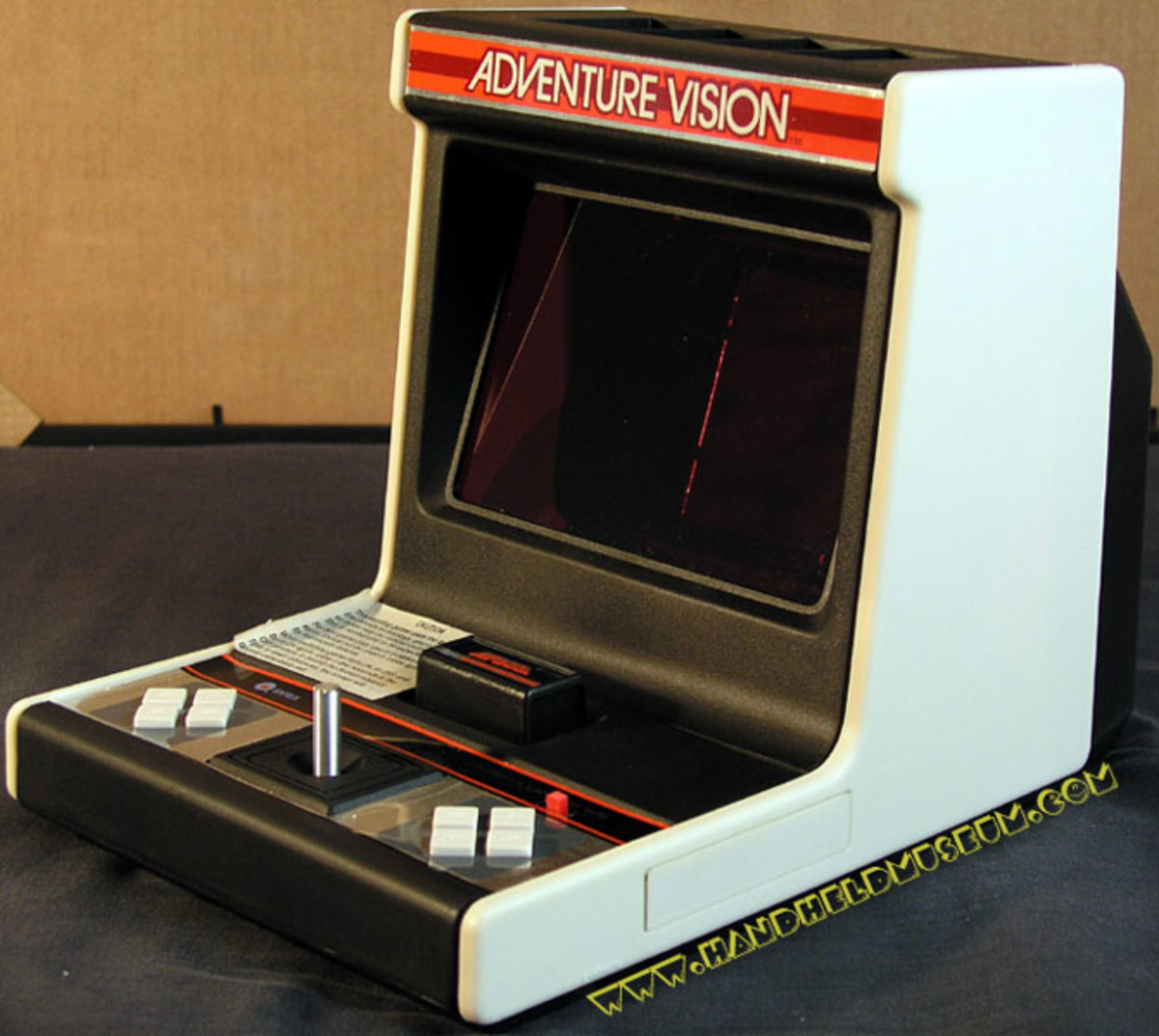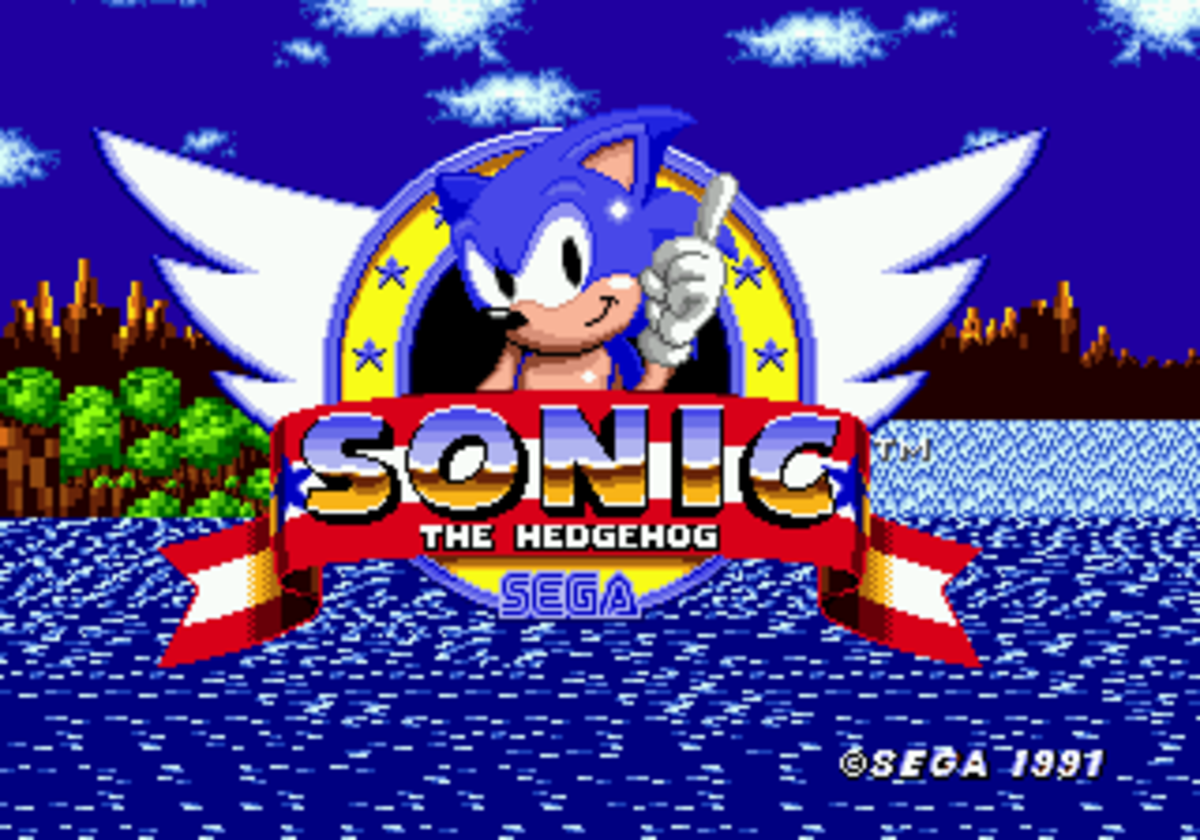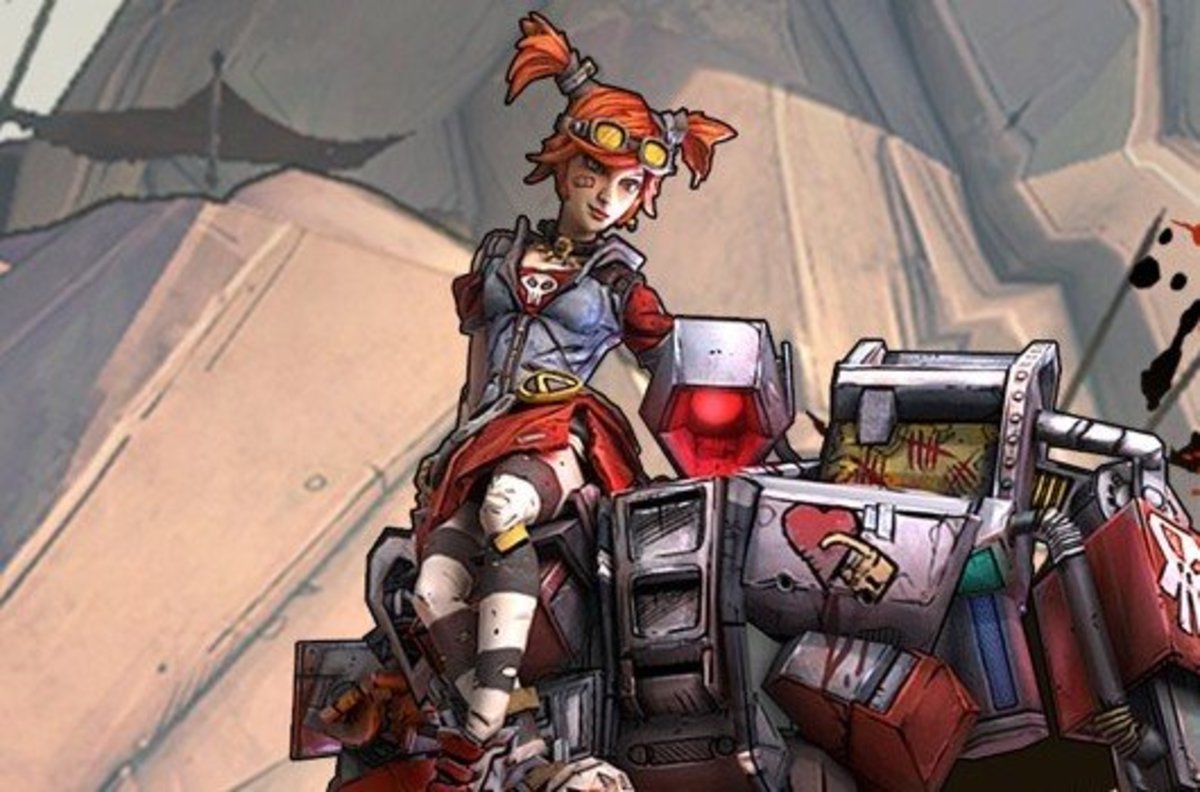A fuse for thought- The WiiU: what is Next Gen gaming?
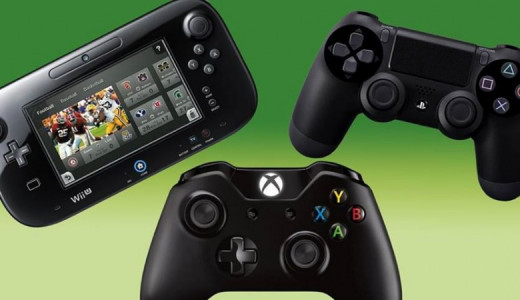
Welcome, Internet! I've been hearing the term “Next Gen” thrown around in reference to the newest string of consoles like never before. I've been paying careful attention to this slew of consoles from the competitors: Sony, Microsoft, and Nintendo. Let's take a look at the “ins and outs” of these consoles. Let's break them down on every aspect, more than just the technical specifications, and much more than the available games. In fact, we may not be covering the games in many instances, since the game is, more or less, a separate entity of the console. But enough banter, we've got gaming systems to stare holes into!
First, What is a generation?
Well, the Merriam-Webster online dictionary gives us four different definitions for “Generation”. Many others will offer similar definitions, but I'm confident this is a good source to work from. Now, the four definitions of “Generations” are as shown in the Merriam-Webster online dictionary: a: “a body of living beings constituting a single step in the line of descent from an ancestor.”, b: “a group of individuals born and living contemporaneously (existing or originating during the same time).”, c: “a group of individuals having contemporaneously a status which each one holds only for a limited period.”, or d: a type or class of objects usually developed from an earlier type.”. In general, this tells us nothing we don't already know; a generation is an object of some kind that comes after its predecessor. Simple, right? Well, we're talking about video games. Nothing is truly simple in video games. Seriously, go try and understand the simplest form of coding that makes Mario jump in one of his games. You'll be surprised.

Okay, how do we determine anything from that?
Well, the only definition from the Merriam-Webster online dictionary that that may not apply to consoles would be the first one: “A body of living beings”. Since, under that logic, none of our consoles are truly “Living”, none of them are part of a generation. But let's change the word from “living” to “existing” for the sake of this research. Changing that one word suddenly throws every console into play, since all three constitute a step in descent from an ancestor, I.E. The Xbox 360, PS3, and the Wii. Then again, this is one of the simplest definitions, so let's take a look at the others.
“A group of individuals born and living contemporaneously.” Okay, let's start out from the back end of this definition “born and living contemporaneously”, meaning they came to existence around the same time. We know this isn't the case with the WiiU, as it was released November of the previous year, which appears to be a whole year before their competition (which, as of this post, the other two still aren't released). Under this logic, can we call these systems “next gen”? Well, truthfully, we can't call the competition next gen at all, considering that they aren't even available for purchase yet. But under the logic of this definition, the WiiU is of a completely different generation from the other two. “But it's only one year apart! Humans are classified in generations between 20-30 years, so why can't we compare these to the same generations?” Well, first, we shouldn't use ourselves as a reference in a case like this, since most console “generations” only last between 7-10 years. We have to consider there's much more time in the age of a console than in people. Second, one year can make a huge difference in gaming. If Nintendo had released the WiiU around the same time the PS4 and Xbox One are to be released, there would be no competition. We live in a gaming community loaded with the need for graphics, and raw technological power. This one year head start may be the only thing Keeping Nintendo on their feet, especially when the technological aspect is brought into play.
Well, we still have two other definitions to cover. Next, let's look at c: “a group of individuals having contemporaneously a status which each one holds only for a limited period.” This brings all of the consoles into play, each one holds the status of “successor” in this case. And they're only going to have this status until the next string of consoles out (Xbox two? That just makes it even more confusing...). That didn't take much to break down. On to the last one, “A type or class of objects usually developed from an earlier type.” Well, let's look at the first end of this definition: “A type or class of objects”. Since we can classify them as “consoles” in the same manner as we always have, then they come from an earlier type, which we've already covered, so it looks like they all fall under the textbook definitions of what make a “Generation”, and we can still indirectly call them “Next Gen” if we so choose.
Hold on, TNTHusky! why do you want to so accurately describe which consoles fall under "Next Gen"?
Simple. Ever since the WiiU's release, it has been said the WiiU isn't “Next Gen”. I don't disagree with this, but I wanted to dig down and get a definitive answer. This is one of the two major questions here: “Is the WiiU next gen?” and “What is next gen?” Let's dig some more. We know under the textbook terms, the WiiU can generally be considered “next gen”. But, if there's one thing the gaming community doesn't very often use (We're ALL guilty of this), it would be the idea of textbook definitions. So, I went to different opinions of Gamers. Here's one of my responses: “[Next gen is] New innovations more than anything. Something new and fun brought to the table that we didn't expect and haven't really seen before”. Another opinion from a Hubber who also happens to be a gamer stated: “I think for something to be truly 'Next Gen' it needs to offer something unique, groundbreaking and above all exemplify a true sense of progress compared to the past generation”.
Okay, so we have a generalization that something “Next Gen” is something new brought to the table. With that in mind, let's ask: “Did the WiiU bring anything new to the table?” For that, we need to look at the features within the console. From a technological standpoint, the WiiU has brought little. Some more graphically than the Wii, but not very much. We can't call it “next gen” under those specifications. There is one particular elephant in the room, though: Nintendo has had a history of lacking in processing power since the N64. Anyone who knows the company knows what they do. Nintendo strives for innovation in the player's hands as opposed to the inside of the system, so let's look at what the WiiU has outside of technological specs.
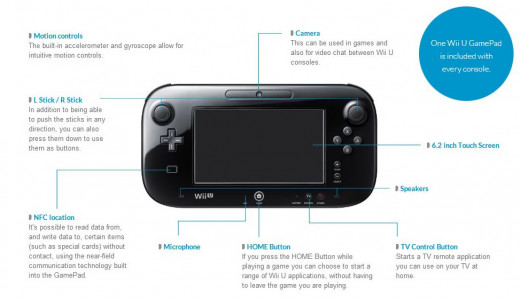
One of the biggest features of the WiiU is the WiiU Gamepad, so let's start there. The gamepad offers a 6' touchscreen in the center of its build. The touchscreen, in most games, allows the player to separate from the TV without interrupting their game. This has to be one of the most Gamer friendly features I've seen in a console. One of the biggest problems for a gamer is when the television they're working with or playing on is needed for something other than the game they're currently playing. The gamer can immediately turn their tablet of a controller into a psuedo portable system while someone else uses the TV. The gamepad also has several functions to further cater to this, such as the headphone port, built in microphone and webcam, and AC charger. The only thing bringing the Gamepad down is the low battery life. The thing only lasts about 3 hours, which isn't good for gaming.
Aside from the Gamepad, what is there? Well, it may not sound like it, but HD is a step forward for Nintendo. No, we can't rule out that Sony and Microsoft beat them there, but remember that history of theirs. Nintendo has put physical innovation first long before the competition. In fact, did you know that motion controls were proposed for all three companies? Sony and Microsoft weren't very interested in it, but Nintendo saw it as the latest innovation, and It was. It made the console a family enjoyment system, and made a nod back to the famicom, which meant “Family Computer”.
“But the WiiU's graphics are terrible!” We've been over this already. You can't judge a console based solely on the graphics and processing power. If you stayed under that logic umbrella, the PC would always win, since most gaming PC's even today can run circles around the PS4 and Xbox one. Video games are an entertainment device. While, yes, Video gaming has become an art form. It has created a unique meld of art that has to attract as many senses as possible. It has to sound beautiful, look beautiful, and feel beautiful before it can be beautiful. This is why games like Earthbound have such a dedicated fanbase. They appeal to as many senses as a gamer can receive from. It's also a reason why games like the Elder scrolls are so successful even today.
Okay, TNTHusky. That sounds pretty reasonable.
That's the plan. So the biggest question here: Is the WiiU next gen? Well, despite my explanation here, going into what makes it next gen, defending it, and all the things I said here, it's still a matter of opinion. Going back to collecting opinions, another hubber answered that the term itself is subjective, and for good reason. Under the textbook definition, the WiiU is definitely a next gen console. But again, how often does a gamer classify a console based on textbook definitions? When you look at it from a technological standpoint, the WiiU isn't next gen. It's lacking in power as Nintendo's systems have in the past. When compared to the upcoming systems, it is undoubtedly puny. But remember that generalization there? Many argue that next gen is when something new is brought to the table, and that is something Nintendo has capitalized on for quite some time, bringing with it physical innovation before the competition. But, yet again, it brings us back to opinion. Do you think the WiiU is next gen? Why? Do you think the textbook definition is the most logical? Or do you disagree, and think tech specs are the most important part of a console? Or do you think what it brings to the table is the most important aspect? In a case like this, opinion will always triumph over a technicality (except in court).



